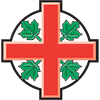The Prolocutor and the Deputy Prolocutor are Officers of General Synod. Nominees for these offices must be members of General Synod.
The Prolocutor
The duties of the Prolocutor are set out in Section 14 of the Constitution of the General Synod:
Section 14 of the Constitution
- The Prolocutor shall be elected by ballot after open nomination and this election shall take place prior to the election of members of the Council of the General Synod.
- The Prolocutor shall be a member of either the clerical or lay Order.
- The Prolocutor shall be an associate of, and assistant to, the Primate in the affairs of the General Synod and the Council of the General Synod.
- In the absence of the President, or at the President’s request, the Prolocutor shall be chairperson of the General Synod.
- The Prolocutor shall be ex-officio a member of all committees, councils, boards and commissions, standing and special, appointed under any provision of the Constitution, or of any Canon enacted by the General Synod or under any resolution of the General Synod or of the Council of the General Synod.
- The Prolocutor shall continue in office until immediately prior to the prorogation of the General Synod at which his or her successor is elected.
- The Prolocutor who removes from the diocese he or she represented on election shall continue in office as an ex-officio member of the General Synod until such term expires as provided in subsection f),but shall not be entitled to vote during the succeeding session of the synod or to be elected to office by virtue merely of continuing in office under this subsection. In that case, the diocese may elect a representative to succeed him or her as a member of the General Synod until the convening of the next session of the synod, as provided in subsection 8 m).
Source: Handbook of the General Synod of The Anglican Church of Canada
19th Edition, published 2019, page 16
The Deputy Prolocutor
The duties of the Deputy Prolocutor are set out in section 15 of the Constitution of the General Synod:
Section 15 of the Constitution
- The Deputy Prolocutor shall be elected in the same manner as the Prolocutor with the exception that if the Prolocutor is of the Order of Clergy, the Deputy Prolocutor shall be elected from the Order of Laity, and if the Prolocutor is of the Order of Laity, the Deputy Prolocutor shall be elected from the Order of Clergy.
- At the request or in the absence of the Prolocutor, the Deputy Prolocutor shall perform any function assigned to the Prolocutor by the Constitution or Canons or Rules of Order and Procedure.
- In the event of a vacancy in the office of Prolocutor, the Deputy Prolocutor shall become the Prolocutor.
- In the event of a vacancy in the office of Deputy Prolocutor, the members of the Council of the General Synod present at the next meeting of the council shall elect a Deputy Prolocutor who shall perform all the duties of the office until the next session of the General Synod.
- The Deputy Prolocutor shall continue in office until immediately prior to the prorogation of the General Synod at which his or her successor is elected.
- The Deputy Prolocutor who removes from the diocese he or she represented on election shall continue in office as an ex officio member of the General Synod until such term expires, as provided in subsection e), but shall not be entitled to vote during the succeeding session of the synod or to be elected to office by virtue merely of continuing in office under this subsection. In that case, the diocese may elect a representative to succeed him or her as a member of the General Synod until the convening of the next session of the synod, as provided in subsection 8 m).
Source: Handbook of the General Synod of The Anglican Church of Canada
19th Edition, published 2019, page 17
The Officers of the General Synod Collectively
In addition to the particular duties of the Prolocutor and the Deputy Prolocutor, the duties of the Officers collectively are set out in Section 20 of the Constitution of the General Synod:
Section 20 of the Constitution
The Officers shall meet from time to time at the call of the Primate for these purposes:
- To advise the Primate, the Council of the General Synod and committees, councils and boards as required;
- To take action on matters referred to them by the General Synod and the Council of the General Synod;
- To advise the Primate and General Secretary on agenda planning for the Council of the General Synod;
- To propose actions to the Council of the General Synod in respect of subjects for which there is no provision in the mandates of other standing committees, councils and boards;
- To ensure that the Council of the General Synod’s responsibility for overall strategic planning and visioning is fulfilled;
- To monitor and direct the ongoing business of the Council of the General Synod between its meetings, as assigned by the Council of the General Synod and, in turn, to make recommendations to the Council of the General Synod.
Source: Handbook of the General Synod of The Anglican Church of Canada
19th Edition, published 2019, page 19


